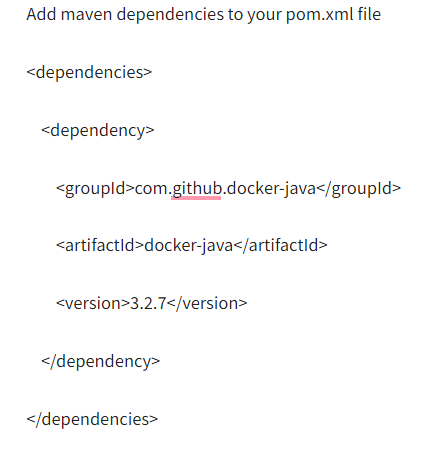How can I delete containers by using docker?
I am currently engaged in a particular task that is related to managing a docker-based environment and suddenly I have noticed that my server is running out of disk space. When I investigated, I found that many stopped containers are consuming space. How can I use docker to delete these stopped containers so that I can free up the space in my server?
In the context of DevOps, if you want to delete the stopped containers in the docker and want to free up disk space, then you can use the following command:
“docker container prune”
Explanation
Identifying stopped containers
Firstly, you would need to list all the containers and then identify the ones that are stopped by using :
“docker ps- a”Removing stopped containers
Now you can remove all the stopped containers by using
“docker container prune”Force removal
If you want to avoid the confirmation prompt so that you can forcibly delete then you can use the -f flag
“docker container prune -f”Here is a java based approach given:-

Creating java program
Import com.github.dockerjava.api.DockerClient;
Import com.github.dockerjava.api.model.Container;
Import com.github.dockerjava.core.DockerClientBuilder;
Import com.github.dockerjava.core.DockerClientConfig;
Import com.github.dockerjava.core.DefaultDockerClientConfig;
Import com.github.dockerjava.httpclient5.ApacheDockerHttpClient;
Import com.github.dockerjava.transport.DockerHttpClient;
Import java.util.List;
Public class DockerContainerManager {
Public static void main(String[] args) {
// Docker daemon connection configuration
DefaultDockerClientConfig config = DefaultDockerClientConfig.createDefaultConfigBuilder()
.withDockerHost(“unix:///var/run/docker.sock”) // Adjust if your Docker daemon runs on a different host
.build();
DockerHttpClient httpClient = new ApacheDockerHttpClient.Builder()
.dockerHost(config.getDockerHost())
.build();
DockerClient dockerClient = DockerClientBuilder.getInstance(config)
.withDockerHttpClient(httpClient)
.build();
Try {
// List all containers including stopped ones
List containers = dockerClient.listContainersCmd().withShowAll(true).exec();
For (Container container : containers) {
System.out.println(“Container ID: “ + container.getId());
System.out.println(“Status: “ + container.getStatus());
// Check if the container is stopped
If (container.getStatus().startsWith(“Exited”)) {
System.out.println(“Container “ + container.getId() + “ is stopped.”);
} else {
System.out.println(“Container “ + container.getId() + “ is running.”);
}
}
} finally {
// Close the Docker client
dockerClient.close();
}
}
}
Listing all the containers
Import com.github.dockerjava.api.DockerClient;
Import com.github.dockerjava.api.model.Container;
Import com.github.dockerjava.core.DockerClientBuilder;
Import com.github.dockerjava.core.DockerClientConfig;
Import com.github.dockerjava.core.DefaultDockerClientConfig;
Import com.github.dockerjava.httpclient5.ApacheDockerHttpClient;
Import com.github.dockerjava.transport.DockerHttpClient;
Import java.util.List;
Public class DockerContainerManager {
Public static void main(String[] args) {
// Docker daemon connection configuration
DefaultDockerClientConfig config = DefaultDockerClientConfig.createDefaultConfigBuilder()
.withDockerHost(“unix:///var/run/docker.sock”) // Adjust if your Docker daemon runs on a different host
.build();
DockerHttpClient httpClient = new ApacheDockerHttpClient.Builder()
.dockerHost(config.getDockerHost())
.build();
DockerClient dockerClient = DockerClientBuilder.getInstance(config)
.withDockerHttpClient(httpClient)
.build();
Try {
// List all containers including stopped ones
List containers = dockerClient.listContainersCmd().withShowAll(true).exec();
For (Container container : containers) {
System.out.println(“Container ID: “ + container.getId());
System.out.println(“Status: “ + container.getStatus());
// Check if the container is stopped
If (container.getStatus().startsWith(“Exited”)) {
System.out.println(“Container “ + container.getId() + “ is stopped.”);
} else {
System.out.println(“Container “ + container.getId() + “ is running.”);
}
}
} finally {
// Close the Docker client
dockerClient.close();
}
}
}
Checking status and remove stopped containers
Import com.github.dockerjava.api.DockerClient;
Import com.github.dockerjava.api.model.Container;
Import com.github.dockerjava.core.DockerClientBuilder;
Import com.github.dockerjava.core.DockerClientConfig;
Import com.github.dockerjava.core.DefaultDockerClientConfig;
Import com.github.dockerjava.httpclient5.ApacheDockerHttpClient;
Import com.github.dockerjava.transport.DockerHttpClient;
Import java.util.List;
Public class DockerContainerManager {
Public static void main(String[] args) {
// Docker daemon connection configuration
DefaultDockerClientConfig config = DefaultDockerClientConfig.createDefaultConfigBuilder()
.withDockerHost(“unix:///var/run/docker.sock”) // Adjust if your Docker daemon runs on a different host
.build();
DockerHttpClient httpClient = new ApacheDockerHttpClient.Builder()
.dockerHost(config.getDockerHost())
.build();
DockerClient dockerClient = DockerClientBuilder.getInstance(config)
.withDockerHttpClient(httpClient)
.build();
Try {
// Example: List all containers
listContainers(dockerClient);
// Example: Check container status and perform action
checkAndActOnContainers(dockerClient); } finally {
// Close the Docker client
dockerClient.close();
}
}
// Example method: List all containers
Private static void listContainers(DockerClient dockerClient) {
List containers = dockerClient.listContainersCmd().exec();
For (Container container : containers) {
System.out.println(“Container ID: “ + container.getId());
System.out.println(“Image: “ + container.getImage());
System.out.println(“Status: “ + container.getStatus());
System.out.println(“---------------------“);
}
} // Example method: Check container status and perform action
Private static void checkAndActOnContainers(DockerClient dockerClient) {
List containers = dockerClient.listContainersCmd().exec();
For (Container container : containers) {
String containerId = container.getId();
String status = container.getStatus();
If (status.startsWith(“Exited”)) {
// Container is stopped, perform action (e.g., remove container)
System.out.println(“Container “ + containerId + “ is stopped. Removing…”);
// Remove container
dockerClient.removeContainerCmd(containerId).exec();
System.out.println(“Container “ + containerId + “ removed.”);
} else if (status.startsWith(“Up”)) {
// Container is running, perform other actions as needed
System.out.println(“Container “ + containerId + “ is running.”);
// Add other actions here based on container status
} else {
